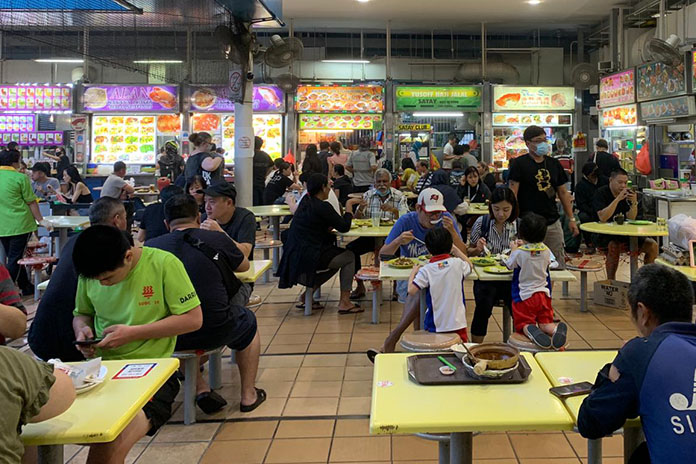
In this season of lists, Singapore must have done something nice to be gifted a place on one of UNESCO’s lists.
Singapore’s hawker culture has found a spot on the Intangible Cultural Heritage list after serving up reasons for inclusion for over two years.
The UNESCO list has 463 items, and Singapore’s hawkers sit shoulder-to-shoulder this year with a mixed bag of awardees, including grass mowers of Bosnia and Herzegovina, the Azerbaijani knowledge of pomegranates, lanterns of Korea, Chanamé cultural expression from Argentina and something familiar to many, craftsmanship of mechanical watchmaking and art mechanics in Switzerland and France.
Singapore’s penchant for putting food at the centre of the table and central to many things is nothing new. We’ve long been known for serving up tasty food — both cheap and expensive. It’s a reputation that has been spread widely by the Singapore tourism authorities and those who’ve experienced it, for decades.
And hawker fare is one of the few things that is still affordable in a country that makes no excuses for being expensive.
But in this very strange COVID-19 year, we have seen the tourism tap turned off. And this will continue for the unforeseeable future. The role of hawker centres as a community eating place has been severely curbed by social distancing measures.
Many hawkers have had their livelihoods threatened by the reduced patronage, though those who picked up on the food delivery apps have been able to make up for some of the lost income.
There’s nothing intangible about hawker food, as the UNESCO title suggests. It’s a daily necessity and one that involves all the senses. It’s the go-to reason for people to meet. Under normal circumstances.
So, what does getting on the UNESCO list do for the hawkers?
There may be a plaque in some ministry.
The Singapore Botanic Gardens made it to the UNESCO Heritage list in 2015. After much hoopla, and a sign at the entrance, it’s still the same pleasant place to walk through. In essence little has changed, and that’s probably the underlying raison d’être for the listing.
Hawker culture, on the other hand, is in need of revitalisation. There are efforts on the ground to bring in the next generation of hawkers to keep the fires and the woks and sauces going for this “unglamorous profession” as it has been referred to. Will the UNESCO listing help change that? I don’t see how, unless the authorities want to pay more attention to this group of people who keep the general public fed in affordable fashion.
While it’s good to encourage people to order their favourite dish to celebrate the occasion, what about tomorrow? And the day after?
Finding meaningful ways to ride on the UNESCO listing would be a good way to initiate the mindset shift about what it means to feed a nation affordably.
Through thick and thin, in sickness and in health, Singapore must be fed.
Photo: Ku Swee Yong





















